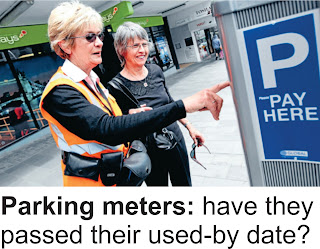We all know what it’s like. When you’re a kid the time span between one Christmas and the next seems interminable. As you age, the gap narrows until it gets to the stage where you’ve barely paid off your credit card from last Christmas and the next one is upon you.
And then there’s the sameness about it all. The same music; Jingle Bells, Snoopy’s Christmas, and John Lennon’s anti-war song And so this is Christmas.
Jingle Bells clearly represents the sound of the cash registers in the busy shops where crafty retailers cunningly add sixty percent to the recommended retail price, remove it and then advertise “sixty percent off.”
Everybody loves a bargain.
And always the controversy. This year it was Race Relations Commissioner Susan Devoy who caused a stir when she agreed with the Auckland Regional Migrant Services policy of avoiding the word Christmas by referring to “Happy Holidays” and “Season’s Greetings” so non-Christians wouldn’t feel excluded.
It was of course a storm in a teacup. Secular New Zealand has never really taken Christmas seriously. For instance they pronounce it Krist-miss instead of its real name Christ-mass. They parade our towns and cities with colourful floats which almost never include a Christ figure; they even call them Santa parades.
“Santa” is derived from Saint Nicholas, but “Old Nick” was a name in ancient English folklore for the devil. Fundamentalist Christians will even suggest that Santa is an anagram of Satan.
A bridge too far perhaps, but you’ll get my drift.
Then there are the carols. “And man will live for evermore” one of them expounds “because of Christmas day.” But don’t get too complacent. According to the church’s sole text book, the Bible, only believers will get to live for evermore.
The Parable of the Sower, documented in three of the four Gospels suggests that only twenty-five per cent of mankind or one in four will become true believers. The last census recorded that forty-nine per cent of New Zealanders said they were Christians which means we may have already exceeded our quota by twenty four per cent.
Perhaps the final straw are the Christmas crackers. This is where the Chinese get square on us for the insidious poll taxes of old and more recently Phil Twyford’s dubious claims about their alleged house-acquiring habits. Comprising tiny valueless plastic toys, cheap as chips paper hats and conundrums that were hilariously funny when we first heard them in the primers they will be producing a profit margin of around five hundred per cent.
Time then to go out and buy the family presents.
Shopping is so foreign to me that last week I went to a furniture store to look for a decaffeinated coffee table. And I’m convinced Sunday is the day God took off from creating the world to take Mrs God around Briscoe’s
I never knew what to give my father for Christmas so one year I gave him $100 and told him “Go and buy something that will make your life easier.”
So he went out and bought a present for my mother.

































